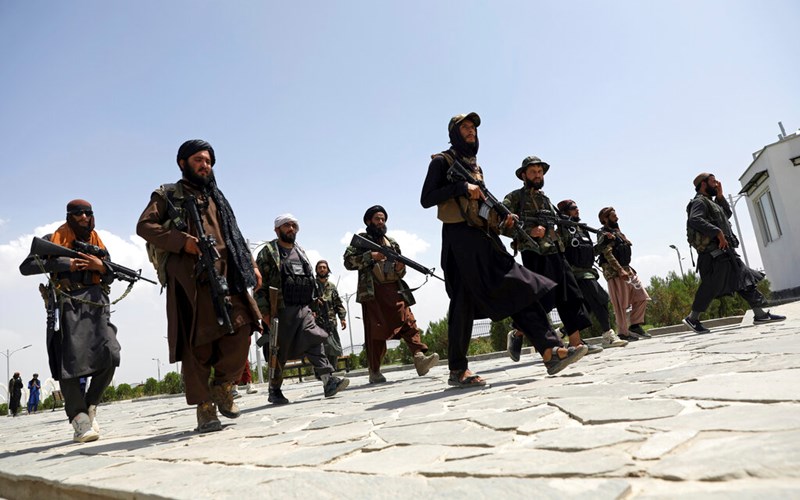U.S. forces found ISIS leader Abu Ibrahim al-Hashemi al-Qurayshi, his family, and others in a building in northwest Syria on February 3. The deaths of the building's occupants were likely the result of a suicide bomb in a last ditch effort for Qurayshi to avoid capture or being killed by U.S. troops. The Pentagon maintains that the raid was "exquisitely planned" and that efforts were taken to minimize collateral damage.
Regardless the circumstances of Qurayshi's death, Sam Faddis tells American Family News that the death of the ISIS leader is "a positive thing [and] the world will not miss him" and delivered a warning to terrorists from U.S. President Joe Biden.
"[The] operation took a major terrorist leader off the battlefield and sent a strong message to terrorist[s] around the world: We will come after you and find you," Faddis argues.

The former CIA operations officer admits that Biden offered a firm warning, suggesting that the United States is taking the threat of terrorism seriously.
"Meanwhile," says Faddis, "Afghanistan has reverted to where it was pre-9/11. People are obsessed with an ISIS caliphate in pieces of Syria and Iraq while the entire nation of Afghanistan turns into a terrorist superstate."
Same old Taliban
U.S. Army Lt. Gen. Michael E. Kurilla, who has been tapped to lead United States Central Command (CENTCOMM), recently entertained the idea of working with the Taliban against ISIS-K. Even though he describes Kurilla as "a superb combat leader," Faddis considers cooperation between the U.S. and the Taliban "a mindboggling concept."
"The Taliban is a terrorist organization with some of its leadership on the FBI's most wanted list with bounties of millions of dollars on their heads," Faddis explains, pointing out the organization's "acting interior minister," Sirajuddin Haqqani as a prime example.
"So how can [the United States] talk about cooperating with [Taliban]?" Faddis wonders.
He also takes issue with those who suggest the Taliban can be trusted.
"There's a story being peddled right now that the Taliban aren't so bad anymore, as if they've evolved and they aren't really terrorists," he offers, "[but] there's no other way to characterize this other than to say that it's a bald-faced lie – and everyone knows it's a lie."
According to Faddis, the Taliban haven't changed. "[In fact], they're richer and better equipped than they were before 9/11." Consequently, he warns, the U.S. is on the brink of dealing with "a catastrophic situation that is much bigger than anything ISIS ever cobbled together – and it's with much greater resources."
Same old threat
Faddis recalls that when al-Qaeda rose up from Afghanistan and struck U.S. soil, "[intel agencies] working this catastrophe considered the facts surrounding the incident – what was known and what was not known – to be inconvenient.
"The next thing [the country witnessed], almost 3,000 people were dead – [and in my] estimation, the country is in the runup to something far worse."
Faddis cites a recent report by the U.N. Security Council that doesn't offer much reassurance on the matter. That report reads (in part):
"The security landscape in Afghanistan changed dramatically on 15 August, when the Taliban took control of the country. There are no recent signs that the Taliban has taken steps to limit the activities of foreign terrorist fighters in the country. On the contrary, terrorist groups enjoy greater freedom there than at any time in recent history."







